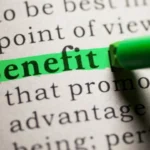In today’s complex financial world, paying taxes is the responsibility of every citizen. Yet, some individuals and businesses still try to avoid this duty through tax evasion. While it may seem like a quick way to save money, the truth is that tax evasion never pays. At AI Tax Consultants, we have seen firsthand how the short-term benefits of hiding income can lead to long-term losses, penalties, and even legal troubles.
Understanding Tax Evasion
Before diving into the findings, it’s important to understand what tax evasion really means. Tax evasion involves intentionally deceiving the government by underreporting income, inflating deductions, hiding assets, or using offshore accounts to avoid paying taxes. It’s different from tax avoidance, which is the legal use of deductions and credits to minimize tax payments.
In other words, while tax avoidance uses the rules to your advantage, tax evasion breaks them completely—and that difference can make or break your financial future.
The Hidden Costs of Tax Evasion
At first glance, evading taxes may appear beneficial. After all, keeping more money in your pocket seems appealing. However, once you consider the risks, it quickly becomes clear that tax evasion is a financial trap.
For starters, the Canada Revenue Agency (CRA) has advanced detection systems that monitor for unusual financial activity, tax filing inconsistencies, and unreported income. With modern technology and international data-sharing agreements, getting caught is now easier than ever.
If you are found guilty of tax evasion, you could face stiff financial penalties, which could include fines equal to 50% or more of the tax you tried to avoid. In addition, you will still be required to pay the full amount of taxes owed, plus interest.
Additionally, criminal charges are not uncommon. Depending on the severity of the case, tax evasion can result in up to five years in prison. In addition to the legal hassle, the damage to your personal and business reputation can be irreparable.
The Emotional and Professional Toll
Beyond the financial losses, the emotional stress that comes with being under investigation can be overwhelming. The constant fear of being caught, the anxiety of audits, and the uncertainty of future financial stability can take a serious toll on your mental health.
Your professional reputation can also be affected. Once your reputation is tarnished by tax evasion, it becomes difficult to regain trust from clients, business partners, or creditors. This can limit business growth and make future financial opportunities nearly impossible.
Why Compliance Is Always the Better Option
Fortunately, there is a better way. Instead of resorting to tax evasion, you can take advantage of legal tax planning strategies to reduce your tax burden without breaking the law.
At AI Tax Consultants, we help individuals and businesses find legitimate ways to optimize their taxes. Whether it’s through allowable deductions, credits, or corporate restructuring, we ensure your financial strategies stay aligned while maximizing your savings.
Additionally, if you have made errors in the past, the CRA Voluntary Disclosure Program (VDP) gives you the opportunity to correct them before you face penalties. Through this program, taxpayers can come forward to report unfiled returns or errors in their filings. Acting early can save you from serious legal and financial consequences.
The True Cost of Hiding
When you weigh the risks and rewards, it becomes clear that tax evasion is never worth it. The money you might save in the short term cannot compare to the potential fines, legal battles, and loss of reputation that follow.
By staying compliant and working with qualified professionals like AI Tax Consultants, you can effectively manage your taxes and avoid the pitfalls of fraud. Remember, the cost of concealment is always greater than the cost of honesty.
Final Thoughts
In conclusion, it is a dangerous game that can destroy your finances, career, and peace of mind. Instead of taking dangerous shortcuts, choose transparency and proper planning. With expert advice from AI Tax Consultants, you can stay on the right side of the law, legally reduce your taxes, and secure a strong financial future.
FAQs:
- What is the difference between tax evasion and tax avoidance? Tax evasion involves illegally concealing income or falsifying information to avoid paying taxes, while tax avoidance is the legal use of deductions, credits, and strategies to reduce tax liability within the law.
- What are the penalties for tax evasion in Canada? The penalties for tax evasion can include fines of up to 50% of the taxes owed, full repayment with interest, and even imprisonment for up to five years, depending on the severity of the case.
- Can I correct past tax mistakes without being penalized? Yes, through the CRA’s Voluntary Disclosures Program, you can come forward to fix unreported income or filing errors before being audited. Doing so can reduce or eliminate penalties and legal consequences.





